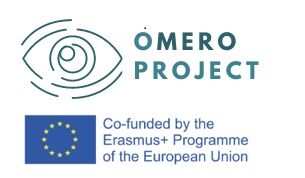According to the WHO’s “Universal eye health: a global action plan 2014-2019”, globally, at least 2.2 billion people have a vision impairment or blindness, of whom at least 1 billion have a vision impairment that could have been prevented or has yet to be addressed.
Population growth and ageing will increase the risk that more people acquire vision impairment. WHO ‘s “World report on vision” (2019) states that effective and feasible rehabilitation interventions are currently available but they need for qualified rehabilitation professionals applying new user-centred and trans-disciplinary approaches in their daily practice.
Currently the qualification of Visual Disabilities Rehabilitator (VDR) is not well-formalized, neither at national level (in National Qualification Frameworks) nor at EU level, since ESCO classification doesn’t refer to them.
Worldwide, With the exception of few initiatives in USA and UK, the professional training of new specialist skills in the area of visual rehabilitation is left to the sporadic, isolated and self-referential initiatives of centres and associations; this fragmented approach affects the quality of the training and the recognition of a qualification.
The oMERO project aims to overcome the above described high-skills gap and to FORMALIZE A NEW CURRICULUM taking to a new specialist figure, the VDR, providing physical, mental and sensorial rehabilitation services, in a new trans-disciplinary, user-centred and ICT-based approach.
Being anchored to the current needs of end-users and the wide society, the proposed CURRICULUM for VDR will BETTER MEET THE LEARNING NEEDS OF HE STUDENTS, while also being RELEVANT FOR THE LABOUR MARKET.
The VDR could be employed both in public and in private sector, in residential, semi-residential or outpatient healthcare facilities; he/she should collaborate with the other members of the rehabilitation team and informal carers.
The VDR is supposed to develop, implement and monitor the global rehabilitation intervention of the visually disabled user of any age, assuring the best level of quality of life and autonomy through empowerment, communication, learning, mobility and orientation, daily life skills.
Project co-funded by the Erasmus+ Programme of the European Community

The European Commission’s support for the production of this publication does not constitute an endorsement of the contents, which reflect the views only of the authors, and the Commission cannot be held responsible for any use which may be made of the information contained therein
